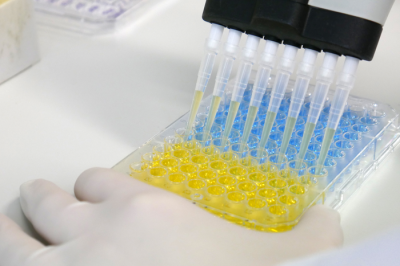Novel COVID-19 vaccine may provide protection for cancer patients with B-cell deficiencies
American Association for Cancer Research (AACR)CoVac-1, a new vaccine against SARS-CoV-2, induced T-cell immune responses in 93 percent of patients with B-cell deficiencies, including many patients with leukemia and lymphoma, according to results presented at the AACR Annual Meeting 2022, held April 8-13.




























.jpeg&width=400&height=400)







